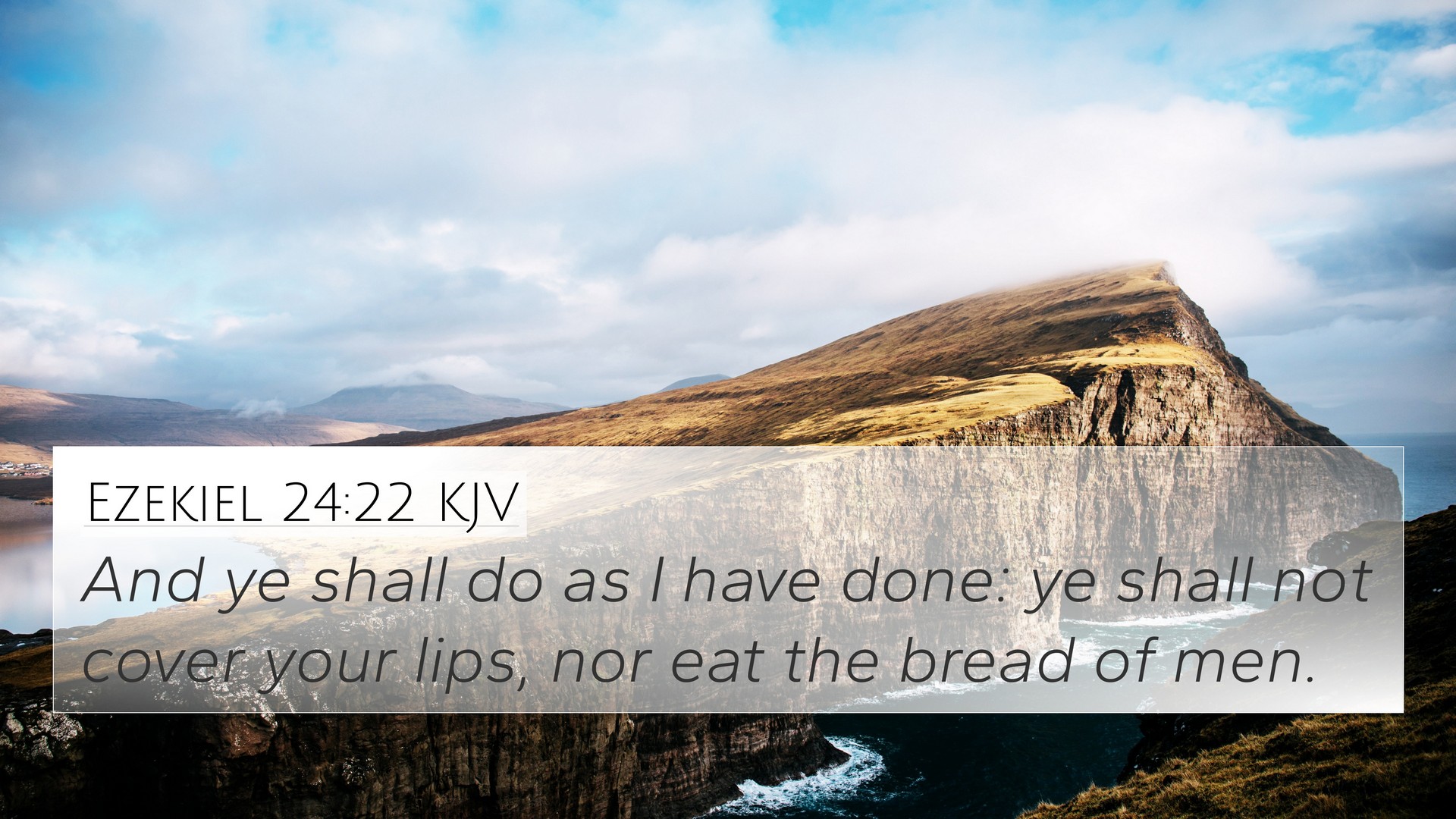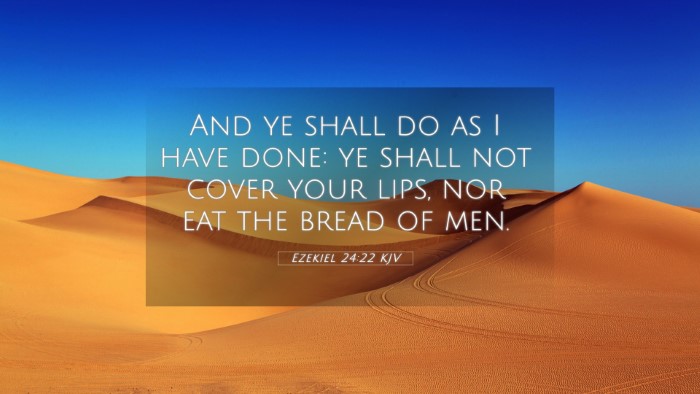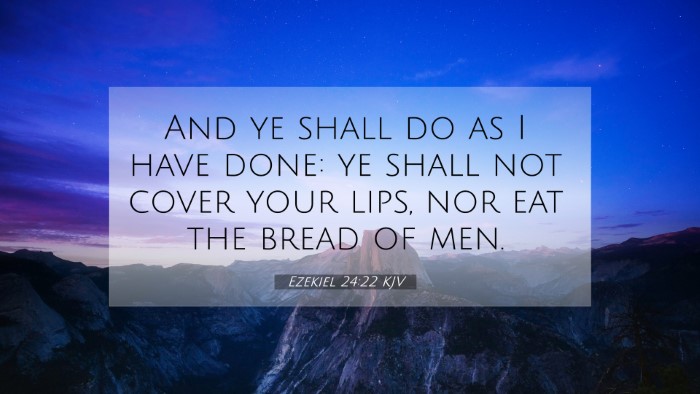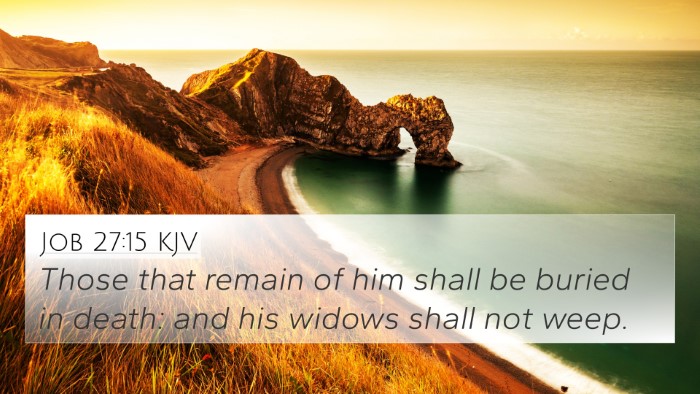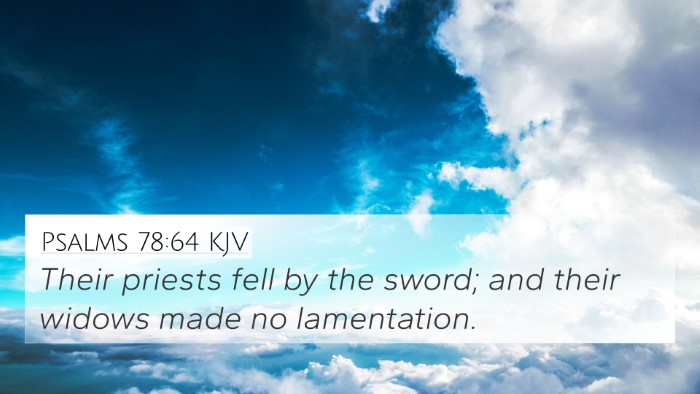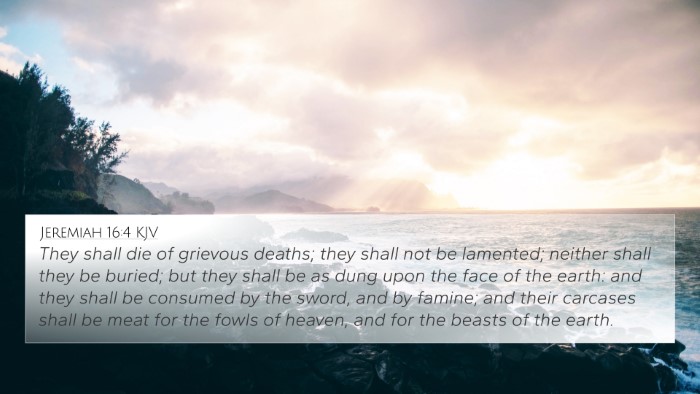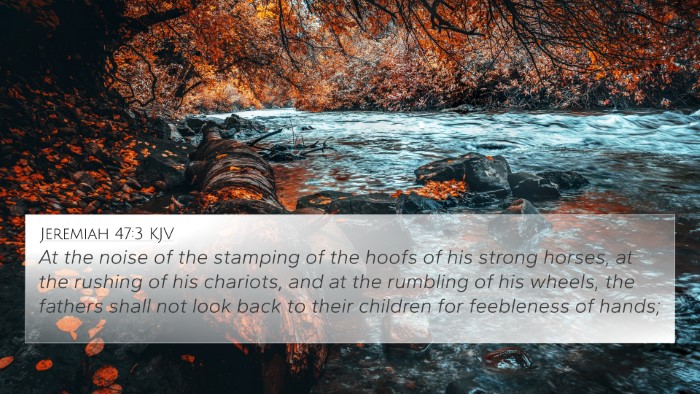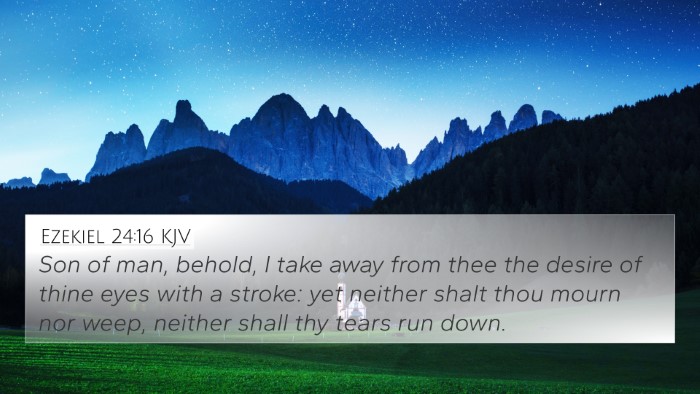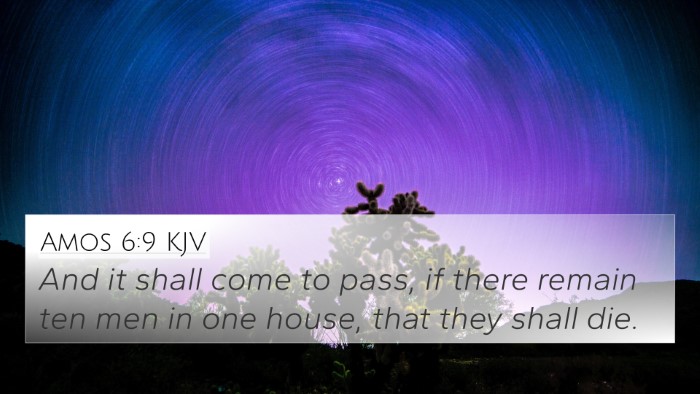Ezekiel 24:22 - Meaning and Interpretation
The verse Ezekiel 24:22 reads: "And ye shall do as I have done: ye shall not cover your lips, nor eat the bread of men." This passage, situated within the context of God's judgment on Jerusalem, carries profound implications both for the people of Israel at that time and for readers today.
Contextual Background
Ezekiel, a prophet during the Babylonian exile, addresses the exiled Israelites, conveying messages of judgment and hope. This particular verse follows an intense period of prophetic action that symbolizes the grief and mourning appropriate for the impending disaster.
Summary of Exegesis from Public Domain Commentaries
-
Matthew Henry:
Henry emphasizes the importance of public mourning and the necessity of not appearing as though one is unaffected by calamity. He suggests that the directive to not cover the lips or eat the bread of men indicates a rejection of customary grief practices, symbolizing a deeper spiritual separation from the society around them.
-
Albert Barnes:
Barnes notes that this instruction was meant to convey the seriousness of the situation. By not engaging in typical mourning practices, the people demonstrate a full commitment to recognizing the gravity of their sins and the imminent destruction of Jerusalem.
-
Adam Clarke:
Clarke points out that the act of refraining from mourning rituals signifies a unique prophetic role. It is not merely a rejection of societal norms but also an embodiment of the message that divine judgment is at hand. This divinely inspired response invites reflection on how one's actions and reactions should align with deeper spiritual truths.
Thematic Connections to Other Scriptures
The message in Ezekiel 24:22 does not stand alone; here are several verses that echo similar themes of judgment, mourning, and social detachment:
- Isaiah 22:12-14: Highlights a time of judgment where the people do not respond with appropriate mourning.
- Jeremiah 15:5-9: Reflects the sorrow that comes with God’s judgment against the people of Jerusalem.
- Lamentations 1:12: Speaks to the immense suffering and calls for recognition of God’s wrath.
- Luke 6:25: Jesus speaks about woes to those who find comfort in worldly matters, similar to the rejection of societal mourning in Ezekiel.
- Matthew 5:4: "Blessed are those who mourn," indicating the duality of grief in relation to sin and comfort from God.
- James 4:9-10: Advises on mourning over sin and the promise of God lifting those who humble themselves.
- 1 Peter 4:17: Discusses God's judgment beginning at His house, echoing themes of divine scrutiny present in Ezekiel.
Importance of Cross-Referencing Biblical Texts
Understanding Ezekiel 24:22 enriches with cross-references that solidify its meaning through thematic connections across the Bible. By investigating these links, one can achieve a more profound comprehension of God's intentions, providing avenues for deeper study and reflection:
- Tools for Bible cross-referencing: Utilizing concordances and Bible study guides can enhance understanding.
- Cross-reference Bible study methods: Approaching scripture by examining interconnections reveals God’s overarching narrative.
- How to use Bible cross-references: Identifying themes allows readers to engage with scripture in a holistic manner.
Concluding Thoughts
Ezekiel 24:22 calls believers to consider the seriousness of their spiritual state and recognize the implications of divine judgment. The rejection of customary mourning serves as a powerful reminder of the need for authentic engagement with God’s messages. As believers examine their lives, they can find direction and hope in connecting various scriptural themes and messages.
As one investigates related verses, it enriches the study of scripture and allows individuals to discern personal and collective significance within the Biblical narrative. Whether through a comparative Bible verse analysis or a thematic study, the connections and cross-references enhance our understanding of the text and encourage a reflective approach to our faith.
